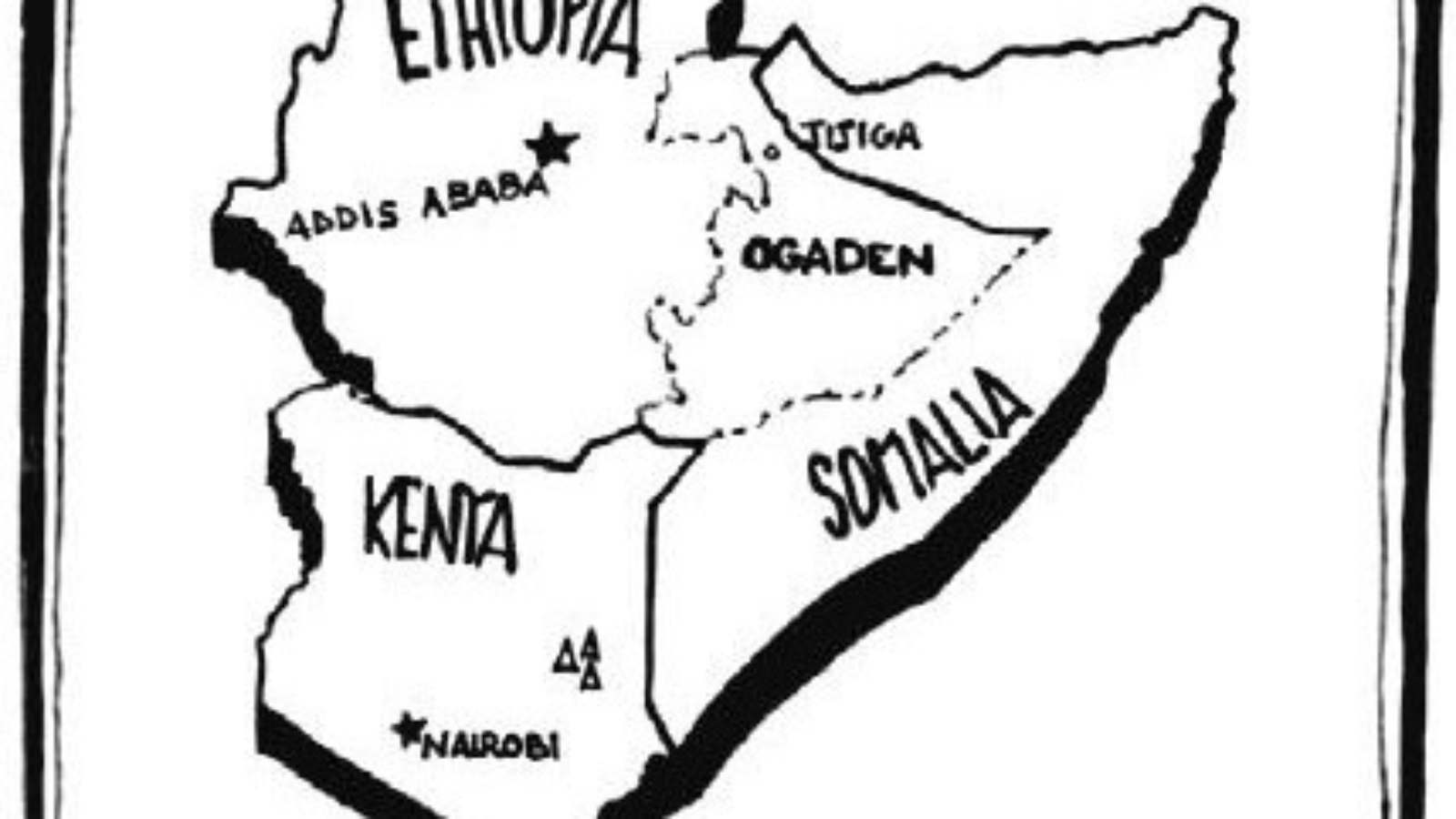Four times a year, the World Policy Journal publishes a magazine of intelligent and thought-provoking writing, investigating pressing issues in global affairs through the Institute’s broad, far-reaching perspective. Recent editions have covered crime and corruption, water and global health. In the next few months, the World Policy blog will issue a selection of articles from this quarter’s fall issue, "The Creative Canon."
by Jonathan Ewing
After the 2007 attack, the conflict between the ONLF and Ethiopian military intensified. The counter-insurgency campaign was re-ignited and featured a crippling cross-border trade embargo and restrictions on the movements and activities of international aid groups—even as the region teetered on the edge of famine.
The fighting continues today, and while accusations of human rights abuses against the Ethiopian military and the ONLF have been reported, scant attention has been paid to the culpability of the oil companies operating in the Ogaden. Several of these oil companies have, in the past, been condemned for similar activities in neighboring Sudan. In Ethiopia, they have only exacerbated the conflict by accepting the protection of the Ethiopian military, which has killed and destroyed villages in the name of providing regional security for the foreign investors.
Before beginning operations, the oil companies should have conducted a detailed risk assessment. That assessment should have identified potential problems, such as accepting the protection of an armed force engaged in human rights abuses. That assessment should also have identified ways to mitigate the problems, and if they could find no way to mitigate them, then they probably should not operate in the Ogaden.
Details of such risk assessments should have been made publicly available and should have been reported to shareholders or included in annual reports. But an examination of the annual reports of Sweden’s Lundin Petroleum, Canada’s Africa Oil Corp (a Lundin-backed venture) and Malaysia’s Petronas show that none of the companies mentioned the 2007 attack, the hostility of the ONLF to oil exploration or the alleged human rights abuses of the Ethiopian government. Despite repeated requests for comment, the oil companies declined to discuss the details of their involvement in Ethiopia.
The oil companies are mostly engaged in exploration activities, and they are under the very tight protection of the Ethiopian military. In pursuit of the oil and gas believed to be in the Ogaden, they have placed themselves at the center of a protracted conflict between the separatists and the Ethiopian government. The mere presence of the companies and their efforts to find and bring oil to market in a hostile environment has only intensified the conflict. Indeed, in the capital, hundreds of miles to the north at the offices of the Ministry of Mines and Energy, a placard on a stained wall declares that the ministry’s job is: “To foresee that minerals and energy development play a major role on the socio-economic development of the country for the benefit of Ethiopians.”
Some, but surely not all Ethiopians are benefiting.
Security Demands
After the 2007 attack, oil and gas companies operating in the Ogaden suspended operations and refused to resume work until they were given security guarantees from the government. Ketsela Tadesse, head of Petroleum Operations Department at the Ministry of Mines and Energy, said that those guarantees were given.
“This oil was meant to help all of Ethiopia; it remains very important to all of us in this country, and if the oil companies wanted security reassurances, then we felt that this was something we must give them,” he said. “So, we promised them that security would be improved.”
Tadesse refused to discuss the details of any security guarantees made to the oil companies, but within weeks of the ONLF attack, the Ethiopian military’s counterinsurgency was in full swing. Much of the fighting during the first few weeks of the counter insurgency, and up until now, has been near the Calub and Hilala oil and gas fields where Petronas, Lundin Petroleum and Africa Oil operate.
By asking for more aggressive security, the oil companies operating in the region at the time may have made themselves complicit in any human rights violations that happened as a result of their request, according to Seema Joshi, a legal advisor with Global Witness, a London-based nongovernmental organization, which investigates natural resource-related conflict.
“This is potentially quite serious. In this particular case if you’ve got a company contracting for security and the security provider, in this case the government, commits a human rights violation while providing security area of social and political tension to the company, then the company could be held responsible.” Joshi said.
Refugees in Kenya, as well as several international human rights organizations, have alleged a government-sponsored displacement program, which forced people away from their homes near main roads being built or refurbished with Chinese help, especially near the Calub and Hilala area. The roads are meant to spur development one day by facilitating trade, including the transportation of oil and equipment out of the region and to world markets.
Jonathan Ewing is a Stockholm-based investigative reporter who traveled to East Africa on a grant from the Investigative Fund at The Nation Institute, researching the relationship between the government of Ethiopia, the separatist rebels, the petroleum industry and the global interests they represent.
Illustration courtesy of Carolyn Tubekis.
